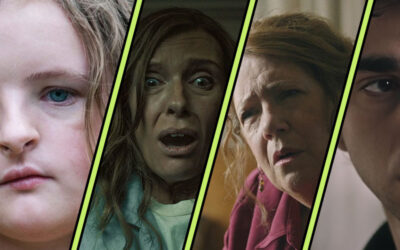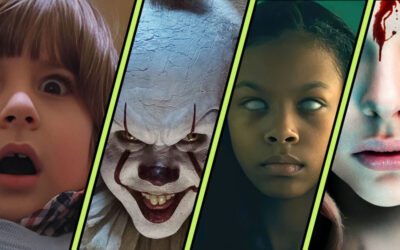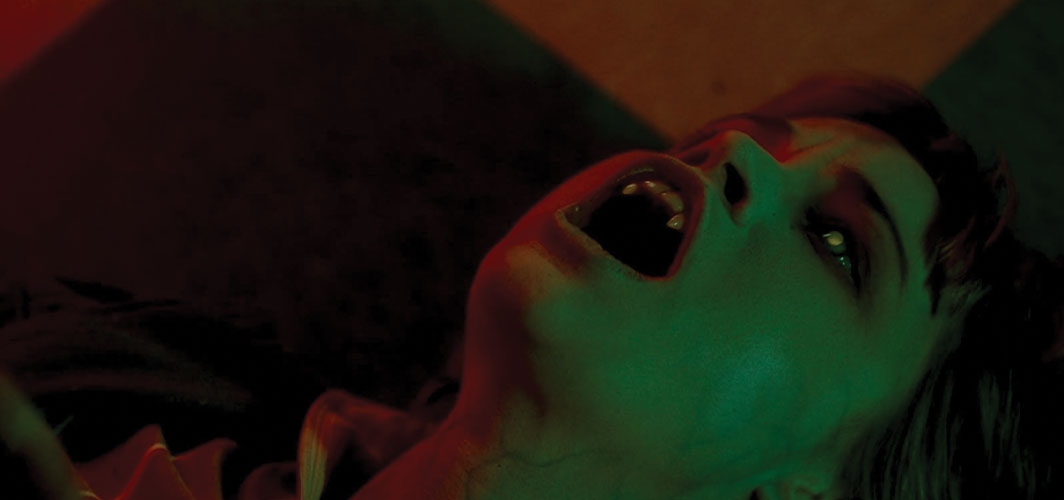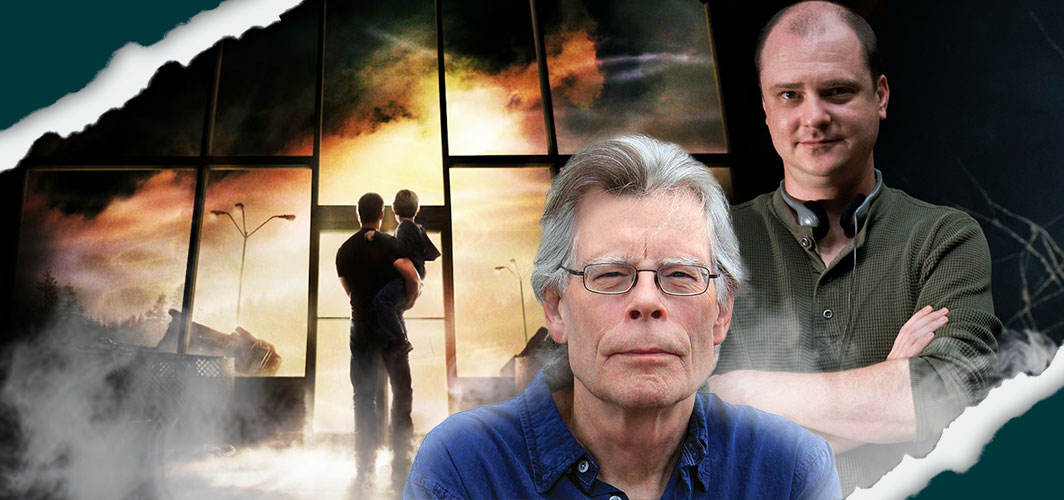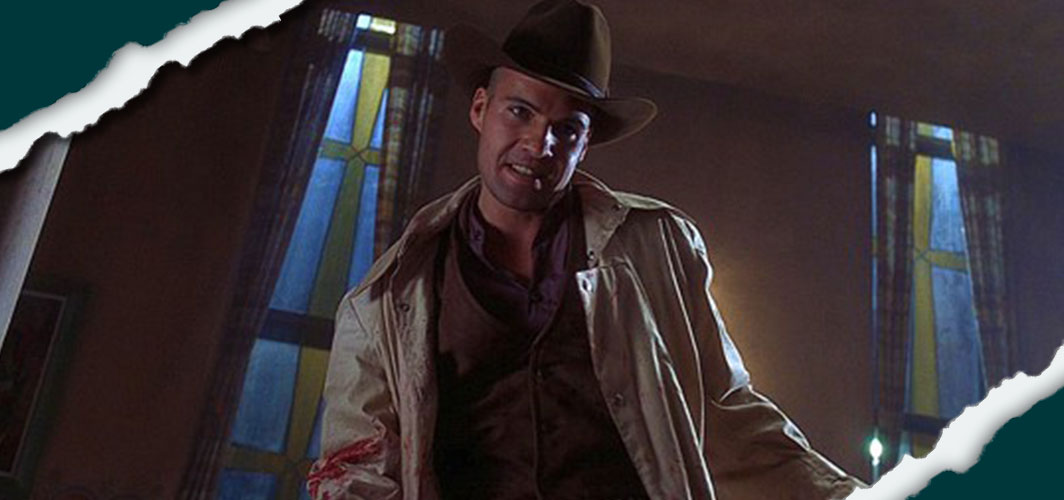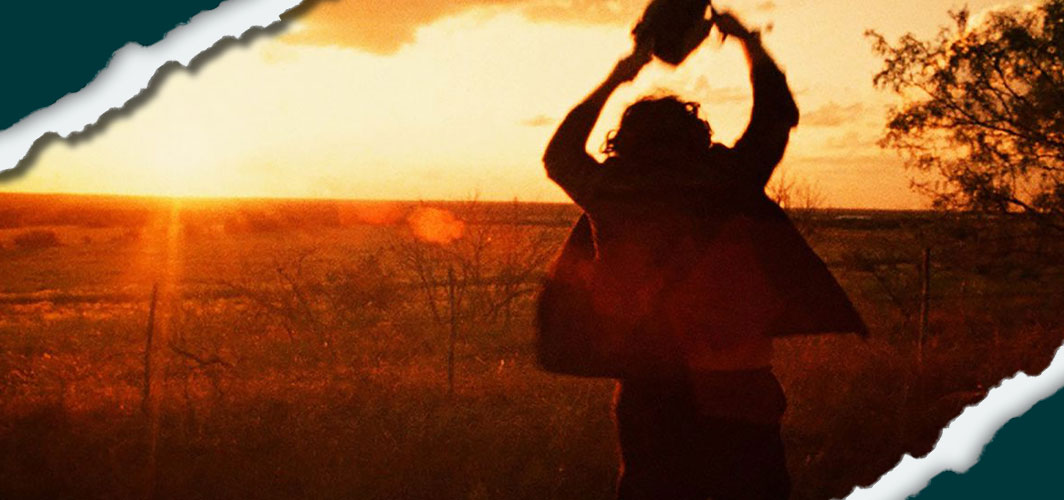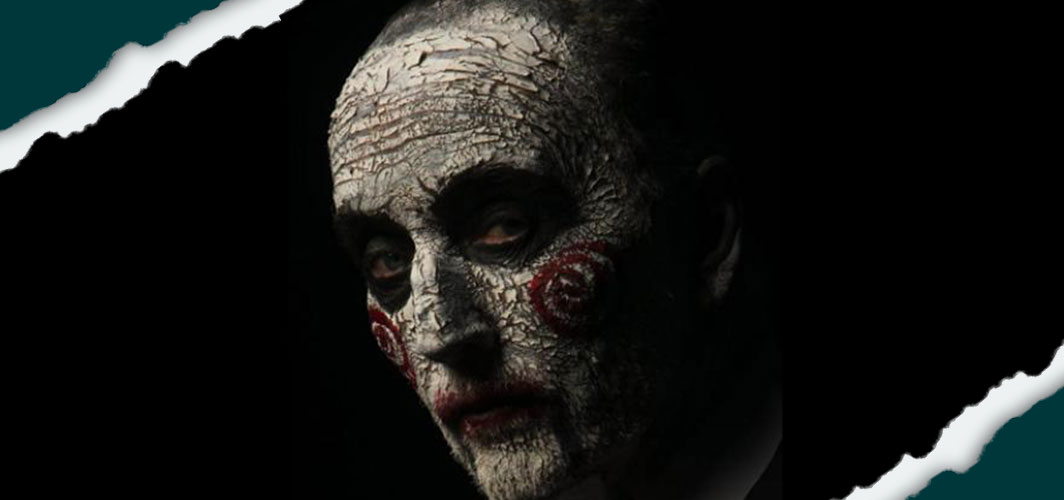Extreme Close-Up – The Art of Eyes in Film
Someone once said that the “Eyes are the window to the soul”. Whether it was Shakespeare, DaVinci or someone else that spoke these words, one undeniable truth is the powerful connection we make with our eyes. They are our primary sense, our single channel to understanding our surroundings. In our day to day lives they play such an important role, it’s easy to see why artists and film makers use the visual imagery of the eye to express complex emotions. Many artists use the image of the eye to capture the emotional value of life itself, and film makers use extreme close-ups to express happiness, sadness, surprise or fear in a single easy to understand shot. The extreme close-up allows a director to reveal something normally unseen, or unfelt. it fills the scene with a minute aspect of a larger whole, a sense of importance and significance that is hard to capture with wider shots. Today we are looking at interesting examples of Extreme Close-ups in film and how they can express things without words. Extreme Close-Up – The Art of Eyes in Film.
All the colours of the dark – Blue Lens

Italian director Sergio Martino’s films were pretty hit and miss, with his three giallo films (Italian horror) being highlights of his career. One of these is All the Colours of the Dark, which sees a London woman haunted by nightmares of a bright blue eyed, knife wielding, psycho. The film shows glimpses of the killer’s colourful eye in dream sequences, and they are stunningly unnerving. The tight framing is unsettling and forces the audience into this uncomfortably close view of a stranger’s eye. There are many films that use this technique upset the viewer, but in All the Colours of the Dark, it’s the unique look of the killer’s eye that sits it apart. There’s something quite striking about the pale blue lens worn by the crazed murderer. He is clearly wearing early 1970s contact lenses, and the hand painted finish give the man a crazy unreal look. Almost as if he has stepped out of a comic book.
Alphaville (1965)– Your Voice Your Eyes

Alphaville a 1960s French science fiction noir film directed by Jean-Luc Godard. The film explores a world void of emotion, where a simple love affair between Natacha von Braun (Anna Karina) and Lemmy Caution (Eddie Constantine) creates a chain reaction that forever changes the world of Aplhaville. Exploring emotion and arthouse styled cinematography, a close-up shot of Karinas pupils reacting to the lights is especially significant. The scene suggests a “love scene” between Lemmy and Natacha, using visuals and the words of a poem to express the new feelings experienced by Natacha. It’s beautifully shot, with its imagery and words endowing the scene with great emotional force.
Donnie Darko (Directors Cut) – TV Eyes

Donnie Darko: The Director’s Cut is a 2004 extended version of Richard Kelly’s directorial debut, which explores time travel and paradox in suburban Virginia. The films strong visuals and ambiguous story makes it a much talked about movie. Additional scenes added to the film include close up visuals of Donnie’s eyes as large amounts of information flashes across the screen. Could it be showing memories? Maybe its messages from Frank (Donnie’s imaginary time travelling friend)? Maybe it’s metaphor of the tangent universe destabilising? Whatever it is, the visuals that race by are very prominent and leave a lasting impression. They invite us to interpret them in any way we can.
Cube (1997) – Wakey Wakey

Cube is a 1997 Canadian science fiction horror film directed and co-written by Vincenzo Natali. The film follows a group of people who wake to find themselves trapped inside a mysterious series of cubes. A man named Alderson awakens in the opening moments of the film, starting with a close up shot of his eye. What I love about this shot, and what stands it apart from others, is the clarity of the image. The iris is in perfect focus, revealing the front pigmented fibrovascular tissue known as a stroma, which gives our eyes our unique colour and style. The opening eye brings the audience into the film, introducing us to this world, as if it is ourselves that have woken. It’s a very strong visual that connects us emotionally with the waking figure and starts us on the journey.
2001: A Space Odyssey – Disco Eyes

Stanley Kubrick epic space drama 2001: A Space Odyssey is a masterpiece of film making. In an attempt to achieve subjectivity, Kubrick puts us the position of astronaut Dr. David Bowman ( Keir Dullea ), seeing through his eyes as he flies through psychedelic cosmological phenomena and strange alien landscapes. To transition into this subjective view Kubrick concentrates on Bowman’s eyes, literally inviting the audience to see what Bowman sees.
Spiderman 2 (2004) – Dual Reflection

“Alright, Mr DeMille, I’m ready for my close-up.” As lines of movie dialogue go, Gloria Swanson’s famous command is right up there with the greats. The matter of fact is that close-ups are a simply way of establishing emotion on camera. No awkward sets, no background characters to distract, what we get is a perfectly framed human face expressing itself. And here we find Sam Raimi’s Spiderman 2, a truly great cinematic moment where we mix a close-up of both face and eye, as a broken piece of glass flies towards Rosalie Octavius (Donna Murphy). We see Rosalie’s screaming face reflected off the shard, reflecting from her fearful close-up eye. Although we never see the impact, the implication is clear.
28 Days Later (2002) – Rage Eyes

In the opening scene of Danny Boyle’s post-apocalyptic British horror, we are introduced to the infection known as Rage, when a group of animal right activists break into a scientific lab. One of the activist is infected and quickly transforms into a crazed zombie-like creature. Boyle familiarises the audience with the infection, by revealing a close-up look of the infected woman’s eyes. Blood shot and crazed, this up front and personal look gives us no doubt that the activist is no longer the person she once was. This simple glimpse tells us all we need to know about this deadly infection, the changed colour of the eyes indicating something terrible has happened to her. This is something that may not have had as much impact in a medium or long shot.
The Jacket (2005) – Travelling Eyes

John Maybury often overlooked time travel film, The Jacket, stars Adrien Brody as Jack Starks, a Gulf War veteran who finds himself held against his will in an asylum. Injected with experimental drugs and bound in a straitjacket, Starks is placed inside a morgue drawer as part of his treatment, forming a rudimentary sensory deprivation tank. While in this condition, he is somehow able to travel 15 years into the future and stay there for a short time. The close-up montage of Starks drugged and distressed eyes are dramatic yet ambiguous. You could view this as a way of showing the time travel taking place, getting more frantic as the film progresses, or you could see it as the effects of the drugs on the helpless veteran. Either way, the films darker images of Starks crazed and supernatural eyes are very disturbing.
Deep Red (1975) – Eye Liner

Deep Red (also known as The Hatchet Murders) is a 1975 Italian horror film, directed by Dario Argento. The film centres around a musician and a reporter hunting down a killer. Early on in the film, we get a close-up shot of a woman’s eye as she applies a thick black line of massacre. The the warm redness of the eye and the hazelnut brown iris are offset by the bold, yet harsh, blackness around it. Whilst this scene appears to be nothing more than an artistic flourish, it reveals one of the films deep (red) secrets!
Blade Runner (1982) – City Eyes

Based on the Philip K Dick Novel, Do Androids Dream of Electric Sheep, Ridly Scotts neo-noir 1982 film Blade Runner. The film starts with a slow crawl towards the centre of the city, flying past buildings, neon bill boards and flame spewing factories, all set to the angelic dreamlike score of Vangelis. Throughout this scene, we cut to a close-up shot of an eye, the city reflected on its surface. Whilst it might be easy to dismiss this as directorial flair, making the scene punchier, it actually serves a narrative purpose. Using this close-up, the film implies that we are watching through someone else’s eyes. Making this scene all more prominent, as replicant Roy views the city’s dark neon lit beauty with all the passion of a dying man.
Dredd (2012) – Slo-Mo

Based on the 2000 AD comic strip Judge Dredd, Dredd introduces us to Mega-City One, it’s 800 million residents and the Judges. One of the films key plot elements is the distribution of a new Drug called slow-mo, which reduces the user’s perception of time to 1% of normal. When the Judges raid a drug den, we get a slow downed close-up shot of one of the dens residents. With smoke drifting through the air and the slowly opening eye, we get a sense of the perception of a slow-mo user. This subjective view is brilliantly realised in an ethereal, music lit sequence.
Psycho (1960) – Drained

Alfred Hitchcock’s crowning achievement is undeniably his 1960 psychological horror Psycho. The film’s most iconic moment comes when d Marion Crane (Janet Leigh), staying at the Bates Motel, takes a shower. Marion is brutally murder in the shower, ripping down the curtain as falls to the floor. As the camera follows the water disappearing down the drain, it slowly crossfade on to Marion’s eye, which is as drained of life, as the water down the hole. The extreme close-up leaves nothing to the imagination. Whilst the attack was ambiguous, where you barely see any real injuries, the close-up shows us that the woman is indeed dead.
Splice (2009) – On Reflection

Directed by Vincenzo Natali, the 2009 Canadian-French science fiction horror film Splice is a terrifying look at genetic engineering. Two genetic engineers splice human and animal DNA to achieve fame. The resulting creation is an extremely intelligent and fast growing specimen, which the scientist name Dren. We get a close-up look of Dren’s strange eyes mid-way through the film. The scenes see the reflection of someone entering the room. From this extreme close-up perspective, we get a sense of distrust and apprehension. The slowly opening door and the figures unhurried entrance builds a sense of unease, as seen through Dren’s eyes.
The Texas Chain Saw Massacre (1974) – Raw Terror

Tobe Hooper’s disturbing 1974 horror The Texas Chain Saw Massacre is a rollercoaster of shocks. The film witnesses a group of friends and family murdered by a Leatherface and his deranged family.In one scene, Sally Hardesty (Marilyn Burns), is tied to a chair and tormented by the maniacs around a dinner table. Tobe Hooper chose an extreme close-up of Sally’s eyes to reflect her raw terror. With the amateurish footage and her wide, widely spinning eyes, the key focus, we are filled with a sense of dread at the unseen things her eyes are witnessing. Sally’s terror is plain to see.
The Magdalene Sisters (2002) – Bloodied Eye

Written and directed by Peter Mullan, 2002 Irish-British drama The Magdalene Sisters introduces us three teenage girls who are sent to Magdalene Asylums. The women suffer unspeakable cruelty and violence from the Mother Superior who routinely mocks and beats the residents. One such scenes sees one of the sisters, Bernadette (Nora-Jane Noone), having her hair roughly cut off with sharp scissors. The resulting struggle leaves her shocked and bloodied. The Mother Superior forces her to look at her “new” self in the mirror, with her beauty gone and her defiance beaten out of her. We see a bloodied eye starring back at us, tired and defeated. Visually, it’s a stunning shot that says more than words can describe. Its narrative purpose transcends the artistic flourish. The girl is defeated, and the tired look in here eye speaks volumes.
Hereditary (2018) Cast — Where Are They Now?
The supernatural psychological horror film still haunts us, but where are the cast now?
The Shine: Discover How it Connects Stephen King’s Astonishing Universe
Explore Stephen KIng’s Extended Universe Power
Comfort Comes with a Body Count
Real terror comes with a name TAG. Dr. Todd Brown brings small time suburbia into the horror highlight!
Hellbound : Hellraiser 2
Don’t Hesitate!
The Green Inferno
What’s Eating You?
Turbo Kid
Smashing Gnome Sticks!
Other Posts Like This
An Illustrated History of Freaky Vampire Eyes
Freaky Vampire Eyes
Movie Poster Cliches – Big Eyes
Here’s looking at you!
Eye Popping Moments
Eye Popping Moments!
” Hey Film Fans – These are our favourite moments in Extreme Close-Up – The Art of Eyes in Film. I SEE that your still here! That’s really GHOULd of you. Maybe you think that we may have missed one or two EYESORES that deserve to be on our list? Let us know in the comments below what you would have DROPPED. In the MEAN time, let’s play a game of EYE spy… I SEE something begging with I….
Keep Rotten”
“Morti” The Mortician


